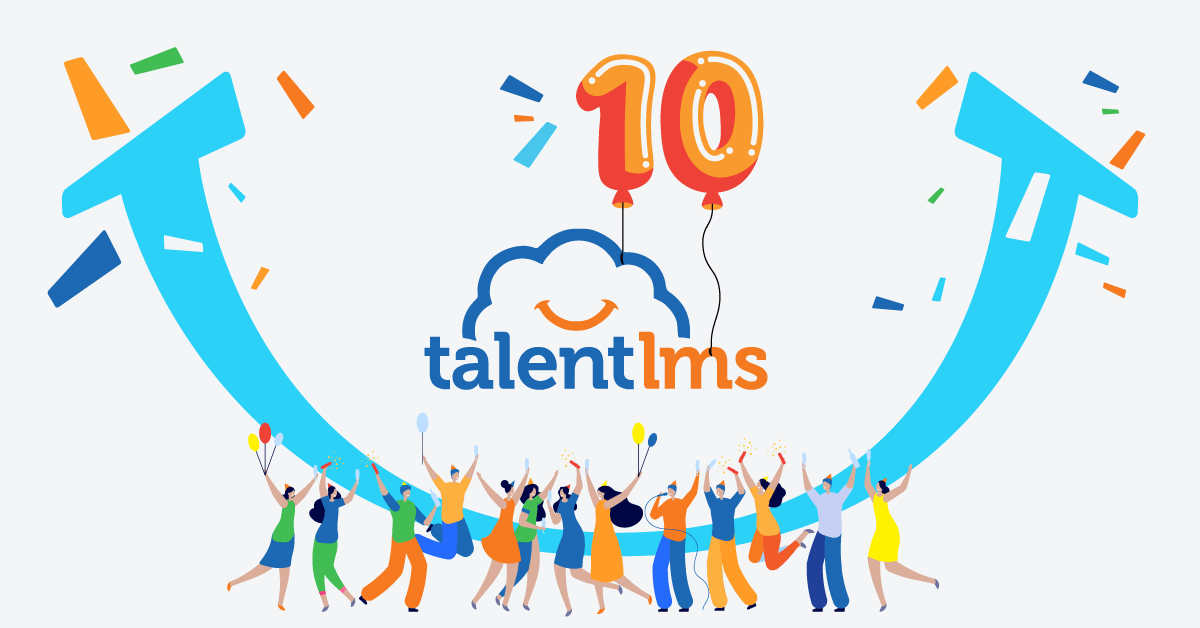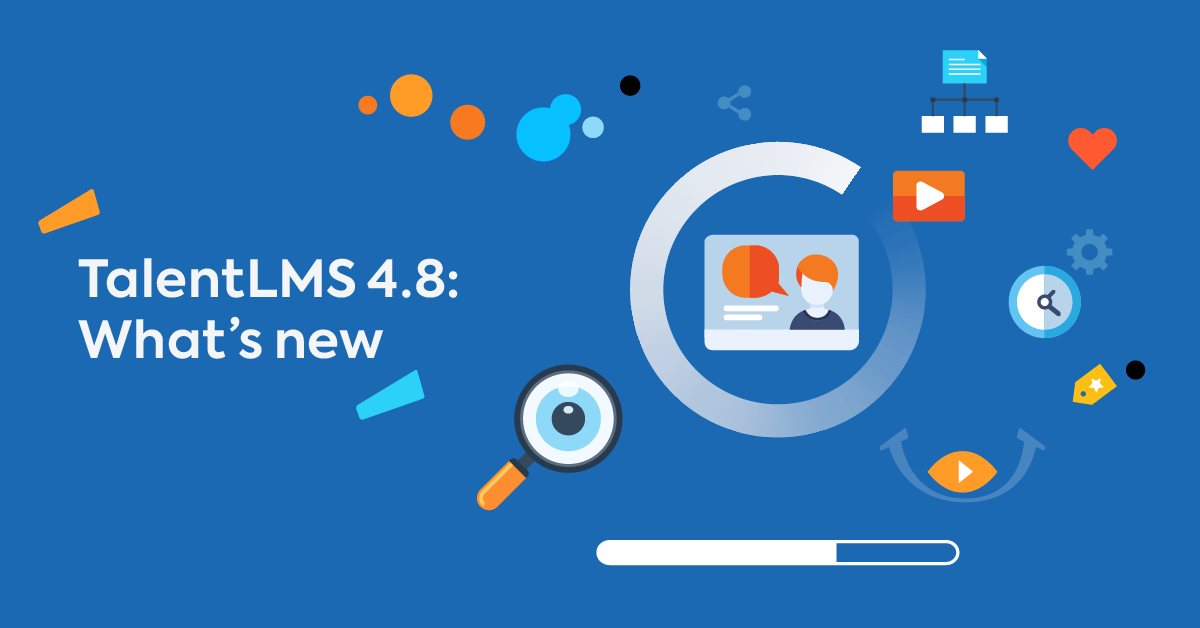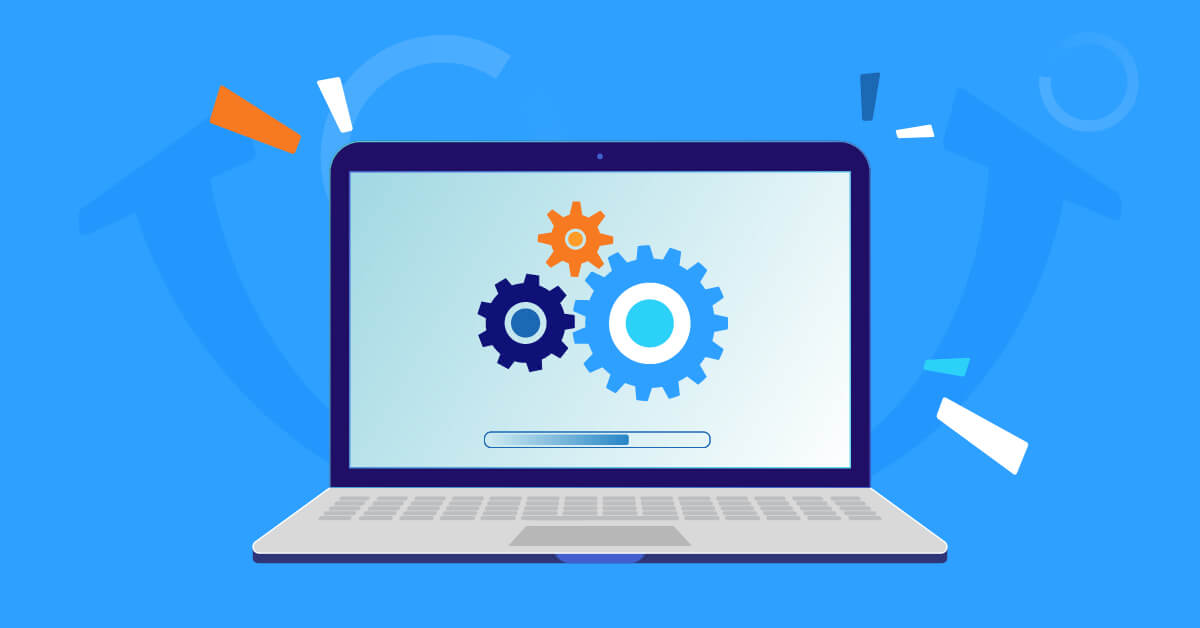Happy 10th birthday TalentLMS!
Wow, how the years have gone by. It seems like yesterday that our vision became reality. But still, there’ve been lots of changes, both in the edTech industry and the product itself.
Now that TalentLMS has been live for a decade, we thought it would be a good chance to retrospect, dig into eLearning trends and TalentLMS features, and explore this amazing journey you’ve all been a part of.
eLearning through the years
As a term, “eLearning” has been in existence since 1999, when the word was first used at a CBT systems seminar. And although 1999 is not that far away, the online training landscape has been transformed since then.
Over the last years, technology has improved and expanded all over the world. More and more tools have entered the continuously evolving training sector. Innovations and fresh ideas were added to the existing technology leading to training platforms with top-notch functionality and features. Not to mention, there was an impressive, fast shift from the analog to the digital world that changed the eLearning trends for good.
But digital transformation doesn’t come easily. Replicating classroom training with an online platform isn’t as straightforward as it may seem today. Often, corporate eLearning was a benefit only larger enterprises could afford. At the same time, cumbersome systems failed to engage learners.
That’s why we invested in creating an affordable, easy-to-use solution. A platform that would make learning a pleasant experience, neither a luxury nor a chore. Ten years later, this remains our priority. Along the way, though, as new needs rose and new technologies emerged, we made sure our platform kept bringing value through improvements and innovations.
Let’s take a trip down memory lane and explore which pillars have significantly shaped the eLearning world—and, as a consequence, TalentLMS—the way we know it today.

The learner became the main point of focus
Some years ago, in traditional training, there was one syllabus, one training content type, one delivery method, and the same material for all learners, regardless of their needs. As eLearning evolved, and more and more advancements, tools, content types, and teaching methodologies were developed, there was a tremendous shift towards the learner.
How do people learn?
How do they interact with the training content?
These questions started making an impact on how training is both built and delivered. Instructional designers needed to have the option to choose between multiple content types, as well as the option to offer online real-time training, too. They also needed to make courses more interactive, e.g., by adding quizzes or gamification elements.
The user interface of LMSs also changed. It’s no longer just about delivering training. It’s also about making a good impression on learners. And making their learning experience as smooth as possible. This can happen with a good UI/UX design which now is a highly-requested LMS feature.
At the same time, learners themselves wanted more power over their learning. That’s when personalized training stepped in.
For example, the option to complete training anytime, anywhere, at their own pace. Or, on-demand training that gives learners the flexibility to choose which courses and which sessions interest them most.
Meet TalentLibrary™
A growing collection of ready-made courses that cover the soft skills
your teams need for success at work
![]()

There’s more need for customization
Along with improved user experience came the need for training that feels familiar.
To meet learners where they are and increase engagement, L&D experts started to seek customizable eLearning solutions.
Localization features to speak the learners’ language. Sub-portals and branches to target different audiences. Custom certificates to comply with regulations and reward learners. These are a few ways companies can now customize the learning experience they offer.
Over the years, there’s also been a greater emphasis on boosting the company brand and keeping consistent messaging. That’s reflected even when we’re talking about internal training. A white label LMS has transformed from a nice-to-have to a success factor. Because it helps businesses adjust the look and feel of their portal to their voice. This way, they increase user adoption and improve the overall training experience. And this is what modern businesses and learners want.
“Remote” became the norm
From 1840 with Sir Isaac Pitman running correspondence courses until today, distance learning has been a particularly useful teaching method for those who can’t physically attend a course or a seminar. Universities around the world have adopted this method to assist remote students on their learning journey. But these instances are only the beginning.
While technology was evolving and new devices made our everyday lives easier, distance learning soon became (fully) remote learning, shaping the global eLearning trends. More and more courses were being offered online, and more and more eLearning tools were being developed to support the transition to the digital world. However, it was not until the COVID-19 pandemic which forced a full transition to the remote world.
It was when people’s habits changed for good.
They’re not necessarily in the office taking courses in a large meeting room or from their high-performing PC. Instead, they may need to be able to get training on the go, access content offline, or join live virtual training while at home.
Training portals had to adjust to fit those (newly) remote workers. The design of the platform had to be optimized to fit various devices. Lighter requirements for non-optimal bandwidth were necessary. And improved integrations with videoconferencing platforms became a must-have.
Not using TalentLMS yet?
Build your portal, create courses, and deliver training in just a few clicks.
Easy to set up, easy to use, easy to customize.
Security makes all the difference
During the past few years, starting with GDPR and, more recently, the new norm of remote work, there’s been a lot of discussion about data privacy. Security has become critical for every business and plays an important role in its overall success.
Training platforms store a plethora of sensitive information. From learners’ personal data to company policies and documents.
At TalentLMS, we take data security and safety seriously. This is why we stay up to date with web security best practices and upgrade our infrastructure to keep your sensitive data safe. All TalentLMS features comply with high security and safety standards.
In fact, Epignosis is the only officially EU Cloud Code of Conduct-certified LMS provider.
What’s in the future for TalentLMS?
Taking a look into how the eLearning trends have changed, as well as the growing needs of learners, L&D experts, instructors, and stakeholders, we anticipate rapid changes in how we approach online training.
With microlearning, gamification, personalized learning, accessibility, and automations already in use and under constant development, one thing’s for sure: the online learning experience will bloom.
That being said, the TalentLMS team is committed to further evolving the platform for even greater accessibility and offering additional integrations that will be able to support all the needs of the future.
Your needs!



